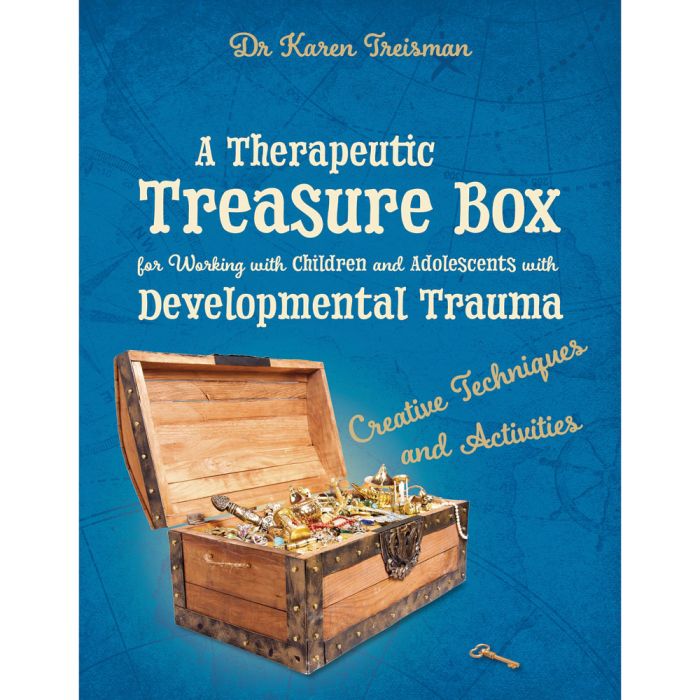A Therapeutic Treasure Box for Working with Children and Adolescents with Developmental Trauma - Book
A valuable and extensive treasure trove of practical techniques and creative activities designed to support children and young people who have experienced developmental trauma.
Includes over 100 illustrated worksheets and hand outs, top tips, recommended sample questions and photographed examples with additional online downloadable materials.
More information below.
A valuable, extensive treasure trove of practical techniques and creative activities designed to support children and teens who have experienced developmental trauma. It explains how we understand trauma and its impact on children, teens and their families often seen in symptoms such as nightmares, sleeping difficulties and emotional and behavioural dysregulation.
The resource is huge and includes 100+ illustrated worksheets and handouts, top tips, recommended sample questions and photographed examples with additional online downloadable materials.
Sections include:
- Introduction to using the book
- Guiding principles and underpinning rationale
- Tools for supporting the assessment and building rapport with young people
- Working towards establishing multi-levelled safety (inner safety, emotional safety, physical safety, felt safety)
- Strategies for supporting children who have experienced relational and developmental trauma to identify, label, express and regulate their feelings
- Strength, resilience and hope-based practices: Finding ways to identify, notice, celebrate and build on children’s strengths skills, resilience and positive qualities
- Strengthening and supporting “parent-child” relationships, relational trust and interpersonal connections
- Team around the family: caring for the caring: holding carers in safe hands, thinking minds and regulating bodies
- Strategies for understanding, reducing and responding to outbursts, tantrums, rage and expressions of deregulation
- Supporting children who are experiencing nightmares and sleep difficulties; preparing, planning, reflecting on and expressing endings changes, goodbyes and transitions
Strategies are primarily intended for use by relational and trauma-informed practitioners or clinicians, however these are also extremely useful to a whole range of people supporting the child – educators, youth workers, parents, carers, etc.
Written by a Specialist Clinical Psychologist, trainer and author.
| Vat Exempt | No |
|---|---|
| Unit Qty | 0 |





